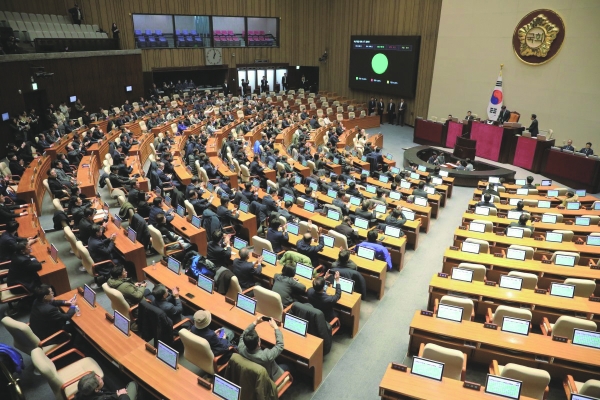
President Yoon Suk Yeol of South Korea declared emergency martial law in the middle of the night on Dec. 3, accusing anti-national forces of exploiting freedom and trying to overthrow the free democracy. He emphasized that martial law was necessary to protect the free constitutional order. However, as his emergency martial law, the future have turned out even darker.
In the wake of the declaration, citizens, soldiers, and journalists collided at the National Assembly, sparking tension. Leaders of both the People Power Party and the Democratic Party responded immediately to the emergency martial law, calling it unconstitutional and demanding its revocation. Notably, Lee Jae-myung, the leader of the Democratic Party, demonstrated showmanship by climbing up the walls of the National Assembly to get past the entrance crowded with soldiers. It was a smart move, especially to broadcast it live.
At around 1 A.M., on Dec. 4, a resolution to revoke the emergency martial law was passed unanimously with 190 National Assembly members in attendance. About six hours after the martial law attempt, at around 4 A.M. on Dec. 4, Yoon delivered another emergency address. He said he would lift martial law in response to the National Assembly’s request. He added criticism of legislative and budget manipulation, urging restraint on these matters. Following this, the impeachment motion against President Yoon was passed in the National Assembly, suspending his duties as of Dec. 14, when Prime Minister Han Duck-soo began serving as the acting president.
The emergency martial law severely hurt South Korea’s economy and global reputation. The stock market fell, and the Korean won weakened. Foreign investors pulled back, deepening economic instability. South Korea’s image as a stable democracy was damaged. The U.S. State Department alerted a travel advisory.
There are various rumors and conspiracy theories about the martial law attempt. Attempting martial law only to apologize a day later indicates it was a poor decision. Martial law should not be imposed without a critical and justified reason, let alone canceled so quickly with a simple apology. A president, in particular, cannot afford to make such a significant mistake. Most people, regardless of political stance, would agree that declaring martial law was fundamentally wrong. In the 21st century, where the word freedom can define our era, the words martial law do not even make sense.


